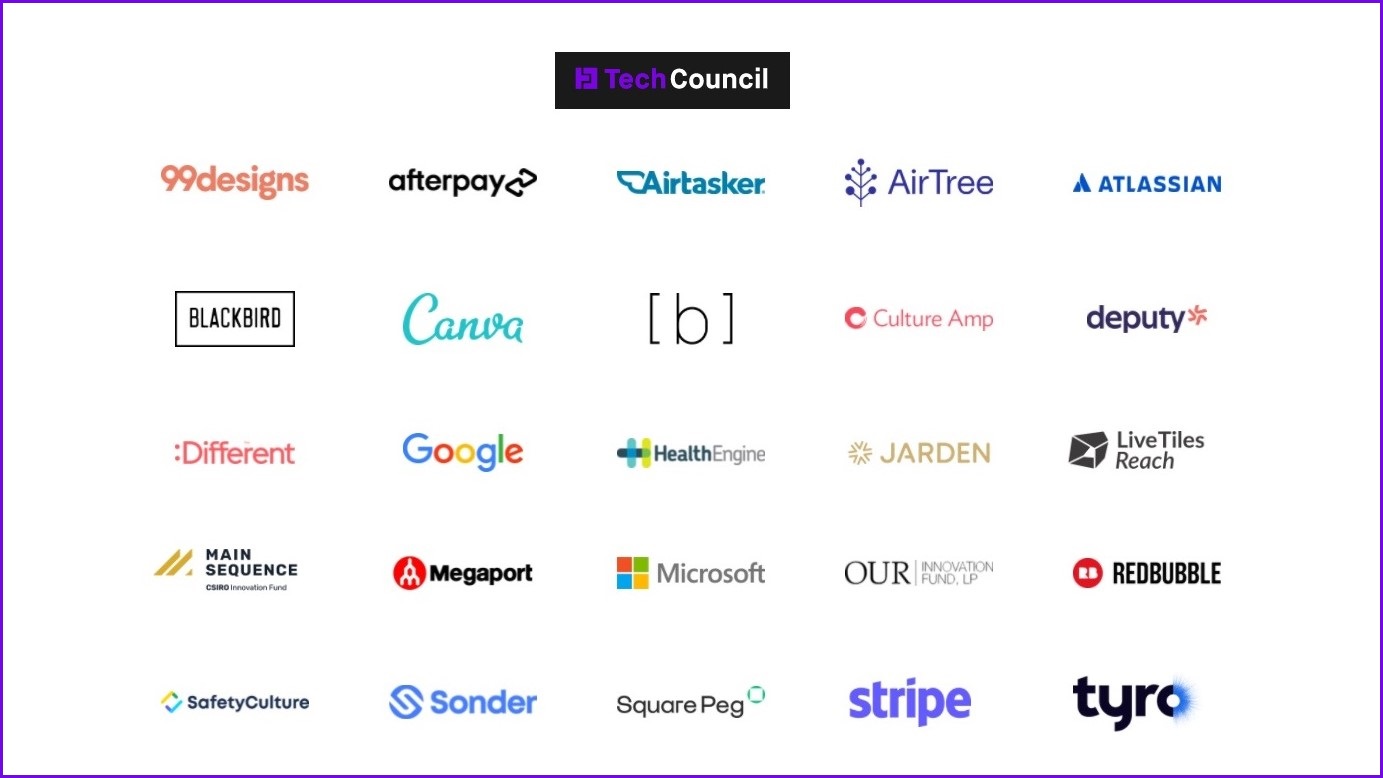A new lobby group comprising Australian technology heavyweights such as Atlassian, Afterpay, and Canva has formed in the hopes of influencing government policy and growing the industry.
Created by former head of StartupAus, Alex McCauley, the Tech Council of Australia has 25 member companies that includes venture capital firms, ASX-listed tech companies, and the local arms of Microsoft and Google.
It currently has three stated aims: to help one million Australians get employed in technology jobs by 2025; to see tech reach $250 billion in Australian economic activity by the end of the decade; and to make Australia “the best country in the world” for making and investing in technology companies.
“Our public policy priorities are underpinned by a desire to see an Australia where people and businesses have confidence harnessing the power of technology, where investors have confidence backing Australian technology companies, and where technology companies have confidence investing locally, including in research and development,” the council said.
The group’s nine-member board is chaired by Tesla Chair Robyn Denholm and also features Atlassian Co-CEO Scott Farquhar, Afterpay CEO Anthony Eisen, and Different co-founder Mina Radhakrishnan.
Its specific public policy agenda includes pushing for the R&D tax incentive to be more welcoming of software development, expanding tax incentives for investors in early stage tech startups, improving the viability of employee share schemes, and making the skilled migration more fit-for-purpose when it comes to tech talent.
The Tech Council also wants to influence the government’s regulatory stance in terms of the digital economy, data protection, and security legislation.
According to the policy section of its website, the Tech Council wants “clear yet flexible privacy laws” and supports security laws “that protect but unnecessarily inhibit”.

The founding partners of the Tech Council. Photo: Supplied.
Tech Council’s own Digital Pulse report
Coinciding with the Tech Council’s unveiling, it commissioned Accenture to produce a report titled the economic contribution of Australia’s tech sector.
Like ACS’ annual Australia’s Digital Pulse report, the Accenture report offers figures that underpin the value of local technology sector.
Headline figures like the 861,000 Australians currently employed by the technology sector – making up one in 16 Australian workers – and that it contributes $167 billion to the country’s GDP help illustrate the industry’s importance.
Australia’s technology workforce has grown 66 per cent since 2005, according to the report, 31 points ahead of the average growth rate of 35 per cent across the broader economy.
That makes technology equivalent to the seventh largest employer in the country, supposedly underscoring the need for another interest group to lobby the government on behalf of the industry’s corporate interests.
Yet the Tech Council’s report also highlights where Australia lags behind, in particular in terms of innovation, noting that we rank “36th out of 38 in the OECD for ICT trade balance”.
This is despite relatively high technology adoption, including that the majority of Australian businesses now use cloud services – compared to just 42 per cent in the 2017-18 financial year.
“While adopting technology is crucial for local productivity and efficiency gains, the greatest economic opportunities for Australia lie in creating new businesses and products that are in global demand,” the report said.
“Research shows that startups account for a disproportionately high rate of job creation, drive higher productivity growth and innovation, and are more likely to introduce new or significantly improved goods or services than older firms.
“Technology jobs also have a greater multiplier effect than any other industry.”
Of the reasons businesses listed for why their technology adoption is limited, unsuitable internet speeds, and lack of ICT skills and knowledge ranked at the top.










